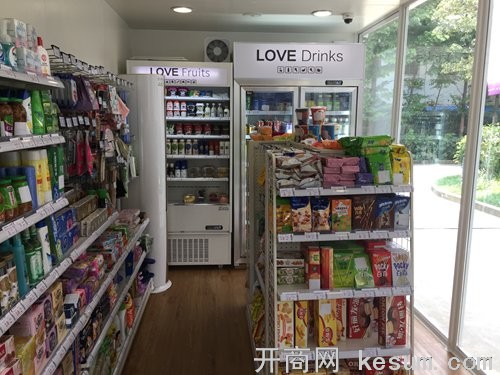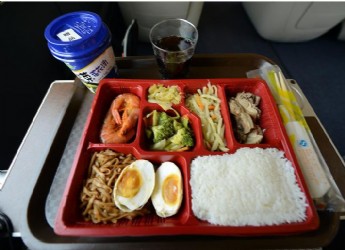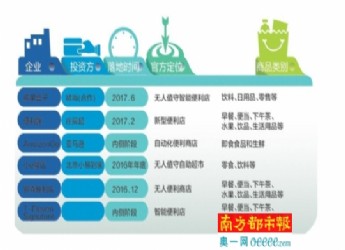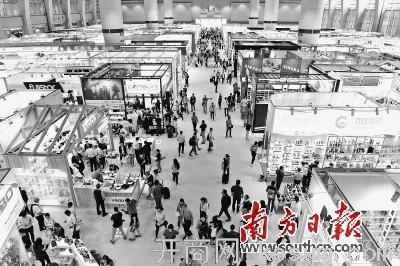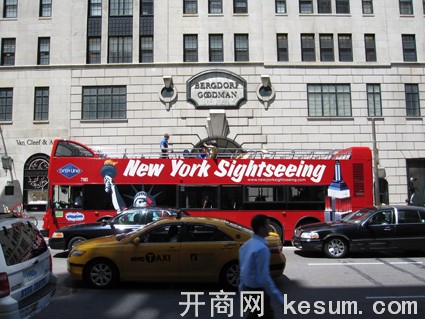More and more Chinese consumers are becoming fans of US products. The growing popularity of US goods in China is in line with the country's economic growth as well as residents' growing incomes, experts say. But experts also note that consumers' passion for US brands will cool down gradually as a result of increasing competition from domestic products.
From McDonald's to Starbucks, US brands have become an integral part of Chinese people's daily lives over the past years.
Yu Ran, 37, a full-time mother of two children living in Shanghai, is a typical Chinese fan of US brands.
In the morning, she feeds her family with Post cereal and then drives in her Ford to the shopping center. At noon, she orders a coffee from Starbucks. Before going to sleep at night, she rubs Estée Lauder cream on her face. She also buys clothing for her children from US brands such as Gap, Gymboree and Carter's and buys Gillette razors for her husband.
Yu recalled that the situation was different a decade ago. She said her parents didn't recognize any US products at that time and the way to purchase them was also limited.
"People around me usually preferred domestic products such as Dabao cream and Bee & Flower shampoo," Yu told the Global Times on Tuesday.
Five years ago, however, Yu's father began choosing US-branded products like Gillette razors.
Besides daily necessities, some US advanced technologies, such as the global positioning system and Intel's central processing unit, are frequently used by Chinese people on a daily basis, even without them being aware of it.
Promising data
Indeed, Chinese consumers have been using more US products in recent years, experts said.
Given this strong demand for imported goods, US companies have noticed fast growth in their financial performance, proving their big potential in the Chinese market.
According to the 2017 China Business Report released on July 12 in Shanghai by the American Chamber of Commerce (AmCham), about 73.5 percent of its member companies reported revenue growth in 2016, recovering from the 61 percent recorded in 2015, with retail and services sectors performing particularly well. AmCham currently has 3,200 registered members.
The report also said that most member companies under AmCham were profitable in 2016, led by areas like non-consumer electronics and life sciences industries.
Many US brands have also been expanding fast in China in recent years. For example, debuting its first restaurant in the Chinese mainland in 1990, McDonald's had opened more than 2,400 restaurants in the market by the end of 2016, according to the company's sources.
Meanwhile, China's imports from the US surged 26.7 percent year-on-year in the first half of 2017, data from the General Administration of Customs showed on July 13.
In the future, more US products will be imported into China as China-US relations begin to strengthen and become more stable, experts said.
The first batch of imported US beef entered the Chinese market in early July after a 14-year import ban was lifted.
Desirable qualities
When asked why she prefers US products, Yu said their quality and easy availability are her top reasons.
"I can easily buy the US products I want via [domestic] e-commerce platforms [like Taobao] or from the supermarkets that specialize in imported goods," she said.
Pan Xiao'er, a resident in Yuyao, a city of about 835,000 residents in East China's Zhejiang Province, also noted that the ways to purchase US products have diversified a lot in recent years.
Apart from e-commerce channels and supermarkets, local residents in Yuyao can enjoy the convenient purchasing of imported goods at the city's about-1,500-square meter bonded area, which opened just in 2016.
"There are also local purchasing agents who go abroad from time to time to bring international products back to the city," she told the Global Times on Tuesday.
"Many Chinese consumers were attracted to the quality and advanced technology of US products," Bai Ming, a research fellow at the Chinese Academy of International Trade and Economic Cooperation, told the Global Times on Tuesday.
The popularity of Apple's iPhone among Chinese consumers can be a good example, said Bai.
Domestic competition
But experts stressed that imported goods from the US are also facing strong competition in the Chinese market from homegrown brands as well as other Asian brands.
Pan said that in her hometown of Yuyao, certain US goods like skincare products were popular, but only among those who are more financially stable.
"In terms of skincare products, for example, consumers like myself love to buy Japanese and South Korean brands which are [cheaper and therefore] more affordable, while women with more economic power might want to choose brands from the US, [which are more expensive]," she told the Global Times on Tuesday.
She noted, however, that it's not common for Yuyao residents to shop for US-branded luxuries like handbags and perfumes.
Wang Xianqing, director of the Institute of Circular Economics at Guangdong University of Finance and Economics, said that the quality of domestic goods has also been greatly improved, posing competition to US brands. (广东财经大学流通经济研究所所长王先庆表示,国内商品的质量也有了很大的提高,给美国品牌带来了竞争。)
"Many made-in-China products, such as air conditioners and mobile phones of domestic brands, have already earned as good of a reputation as their imported counterparts. This trend will intensify in the future," Wang told the Global Times. (王先庆告诉“环球时报”记者,“许多中国制造的产品,如国产品牌的空调和手机,已经获得了进口商同行的声誉,这一趋势也会在未来加剧。”)
Chinese smartphones can be used as an example to echo Wang's comment. Chinese smartphone vendors OPPO, Huawei and Vivo are the top three smartphone vendors in China's smartphone industry by shipment, grabbing nearly half of the market in 2016, data from US-based consulting company IDC showed in February.
In comparison, shipment of iPhones to China dropped 44.9 million in 2016 from 58.4 million in the previous year, according to IDC.
According to Pan, the effects of domestic skincare products are not bad, but sometimes buying US brands is just a matter of social status and taste.
Wang, the institute director, thinks that many domestic consumers are like Pan, whose preference for US goods is driven by "an impulse of vanity or curiosity for the unknown."(研究所所长王先庆认为,很多类似于潘女士的国内消费者,他们对美国商品的偏好是由“虚荣的冲动或对未知的好奇心”所驱动的。)
"This impulse will fade out gradually as time goes by, however," and in the long run, consumers in China will no longer choose products only because they belong to brands of a certain country, Wang predicted.(王先庆预测,“随着时间的推移,这种冲动将逐渐淡出,而从长远来看,中国的消费者将不再仅仅因为生产于某个发达国家的品牌而选择产品。”)
As Chinese consumers gradually lose interest in the importance of brand origin, US companies will need to re-strategize by focusing on localization and tailored customer service, Bai said.
- 本文标签:
| |
|
| 【分享】 【打印】 【收藏】 【关闭】 | |
 |
- 相关内容
- 更多
- 王先庆:中国制造广受好评 国内消费者趋向理 [2017-7-27 16:29:09]
- 王先庆浅谈“无人”概念(中国商务新闻网) [2017-7-27 16:13:32]
- 广东财经大学流通经济研究所与湖北康华智慧 [2017-7-25 15:50:29]
- 王先庆:中西部发展要促消费与降税费并举( [2017-7-25 10:38:50]
- 王先庆:商路不畅导致物流成本增加 [2017-7-25 9:52:00]
- 王先庆再谈新零售与无人超市(环球时报英文 [2017-7-21 11:49:04]
- 图片资讯
- 更多









